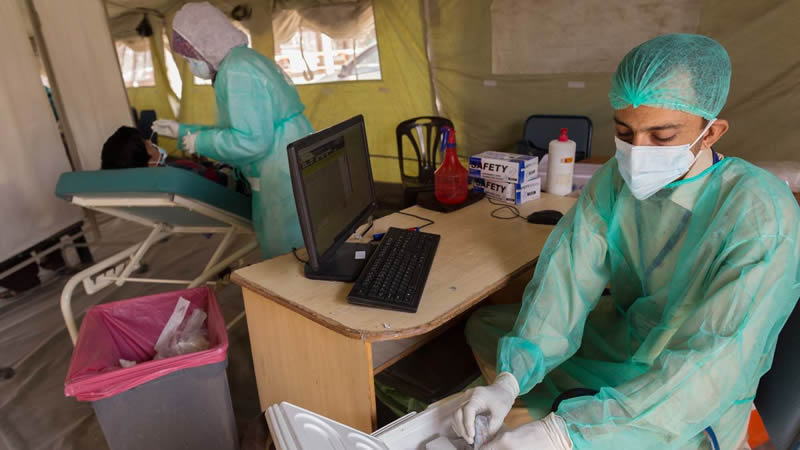 Healthcare and how you pay for it – is one of life’s big worries. In China few people have private health insurance but the market is growing.Polly Deng is 30 and lives with her husband and her mother, Lu Xiao Dang, in Shanghai. Polly’s mother has just returned home after a stay in hospital.”She was in hospital for 12 days having an operation on her foot. It was a minor operation, so we hope she’s going to be fully recovered within three months,” she says.The cost of Lu Xiao Dang’ procedure was 5,000RMB ($773). The Chinese government’s health insurance scheme paid for 60% of the cost of the operation.
Healthcare and how you pay for it – is one of life’s big worries. In China few people have private health insurance but the market is growing.Polly Deng is 30 and lives with her husband and her mother, Lu Xiao Dang, in Shanghai. Polly’s mother has just returned home after a stay in hospital.”She was in hospital for 12 days having an operation on her foot. It was a minor operation, so we hope she’s going to be fully recovered within three months,” she says.The cost of Lu Xiao Dang’ procedure was 5,000RMB ($773). The Chinese government’s health insurance scheme paid for 60% of the cost of the operation.
She paid cash for the other 40% and will claim this against her additional private health insurance – although she does not know if she will be compensated for the full amount. Polly picked up the health insurance habit from her mother. She belongs to the government’s scheme, her company’s scheme, and she has her own private cover.Private health insurance is relatively new to China, but it’s growing fast.”Between the years 2000 and 2009 the average annual growth rate of the private health insurance market in China was around 27%. But what you have to remember is this is growth from a small base,” says Brian Mi, General Manager in China for IMS Health, a medical market research company.
“It is only a tiny proportion of the population who have any kind of private cover, around 3.5% of the market spend on healthcare is paid for by private health insurance. Over 50% of all healthcare in China is paid for by the consumers themselves.”Although the number of people with private healthcare policies may be small now, insurance companies see China as a country with huge potential. But there are obstacles to the development of private health products. One of them is that in the Chinese health system, doctors get a small proportion of their salaries from the state, and have to raise the rest through their patients.This means there is a high rate of drug over-prescription and diagnostic tests – the more you have, the more you pay. Some insurance companies are reluctant to get involved in a market where cost can be open-ended.
But Dr Feng Liu, the Chairman of the Financial Planning Standards Board of China, says insurance companies offering private health plans sometimes do not operate in the interests of their clients.”People aren’t used to buying health insurance, and sometimes companies encourage people to buy insurance they don’t actually need. I think there is too much emphasis on selling the policies and not enough on processing the claims, which always seem to be delayed,” he says.The Chinese government is working on a whole raft of state health reforms. Its Healthy China programme was announced in 2008 with the aim of providing state health insurance for all of its 1.4 billion population by 2020.Before China’s economic reforms began in 1978, there used to be a system of near-universal government insurance cover.
With the move to a market economy, people paid much more for healthcare, one of the reasons why China became a great nation of savers. It is estimated people squirrel away more than 40% of their disposable earnings, some of which will be savings in case of a health emergency.Although 90% of the population now have state health insurance, it only offers partial cover. Generally outpatient costs are not covered and only 60% of inpatient hospital bills are compensated.To pay the excess, people use their savings or borrow from family. But there are also cases where families are plunged into poverty and desperation because they cannot afford health bills.People may buy separate private health insurance to cover the excess cost of healthcare not covered by the state. – BBC












